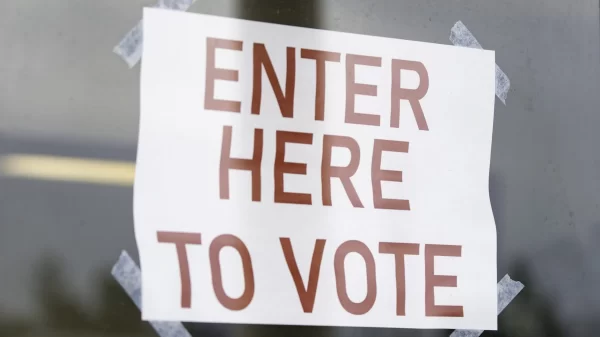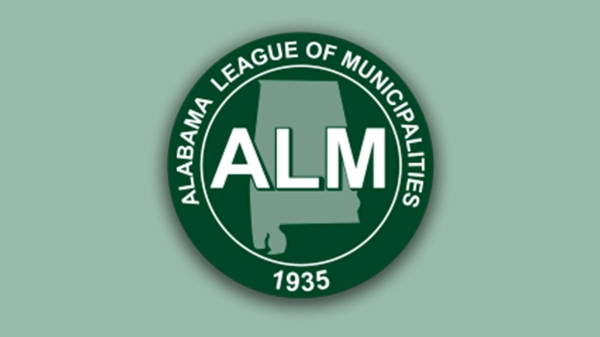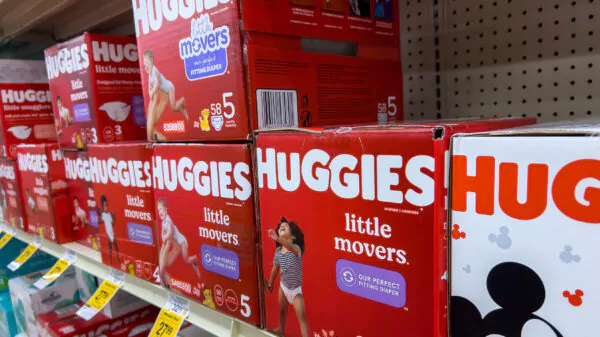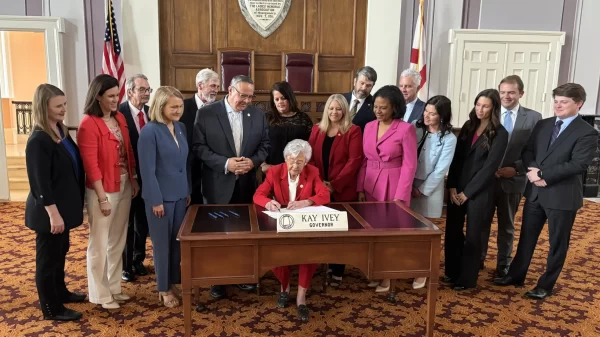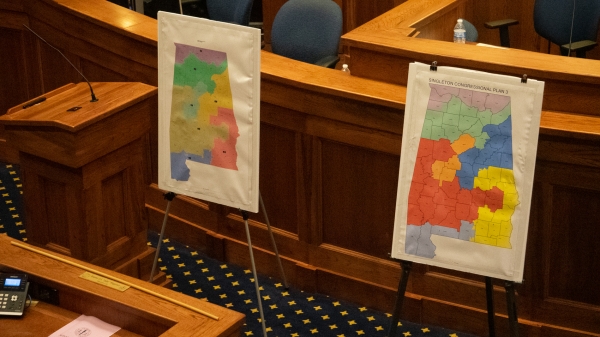As a state, Alabama traditionally ranks from pretty terrible to just plain awful in child welfare. If Alabama were a parent, it would be reported to DHR for child neglect.
If we’re that bad in child welfare, you only get one guess where Alabama stands in animal welfare. Right. Below awful.
That doesn’t mean we can’t get even more awful, though. We’re really trying to go even lower where selling dogs in pet stores is concerned.
Senate Bill 183 quietly passed a Senate committee last week and is awaiting action by the full Senate. For any state senator with a heart for their Golden Retrievers, Labradors, Pugs or other canine companions, this should be an automatic NO vote.
Our politicians in Montgomery are always whining about the federal government interfering in state affairs: “The feds want us to treat prison inmates better.” “They want us to provide mental health services.” “Washington is coming in here, trying to tell us how to treat immigrants.”
Yet, SB183 does to counties and cities exactly what Montgomery politicos always gripe about with Washington. If SB183 becomes law, local governments would be prohibited from passing regulations protecting dogs sold by pet stores. Huntsville and Athens have passed ordinances regulating pet stores that sell dogs; other municipalities are having discussions about regulation. But all those laws would be void if this bad bill passes.
The problem, of course, is the Legislature itself. For years, animal advocates have pushed lawmakers to pass bills that regulate puppy mills. Those bills have enthusiastic sponsors, but big organizations like the American Kennel Club fight the legislation at every turn (the AKC makes money on the dogs produced through registrations).
Pet stores that sell dogs – and, thankfully, Alabama has very few of those (Petland in Montgomery is one) – acquire their animals from massively large puppy mills outside Alabama. These puppy mills just churn out dogs, the pet stores buy them cheap, then the pet stores turn around and sell them for a huge profit. It’s not unusual for a puppy to already be sick or to even die not long after an unsuspecting buyer takes him home.
Animal advocates and shelters are loudly voicing opposition to the bill.
Angie Ingram, a Birmingham lawyer and founder of the Alabama Puppy Mill Project, said in a letter to lawmakers that the Petland is behind the bill because it was trying to locate stores in Huntsville or Athens when those cities passed ordinances strictly regulating pet stores selling puppies.
“Petland is made up of franchises and are required to obtain their puppies from the same sources – large scale commercial breeders that are usually in the Midwest and some of the worst,” Ingram says in her letter to senators. “They like to tell you how they’re all regulated by the USDA. However, about two years ago, the USDA shut down access to even look up the violations of any USDA licensed breeder.”
Ingram has a lot of experience with puppy mills and how they operate from her work with the Cavalier Rescue of Alabama, a well-respected rescue based in Birmingham.
“Petland is running scared trying to dupe each and every one of you,” Ingram tells lawmakers. “PLEASE don’t let that happen.”
Ingram said Petland is trying – and failing – to get similar legislation in other states. “This bill has already been rejected in Georgia, Florida, Oklahoma, Nebraska, Tennessee, and Michigan. In fact, they (Petland) have made numerous attempts in Georgia and it just failed on its 4th attempt last week,” Ingram writes in her letter.
Ingram said that Petland is facing numerous lawsuits for selling sick dogs, some of which have diseases that are transmitted to humans.
“A class action lawsuit was filed against Petland in Georgia for consumer fraud because they sell sick puppies to consumers,” Ingram writes. “People spend thousands of dollars buying these puppies, only to take them home to spend thousands more to keep them alive with veterinary care, many of which still don’t make it.”
Other animal advocates also oppose the bill, including the Greater Birmingham Humane Society, which says the bill is an end-run around local municipalities regulating puppy mills.
“If this bill passes, it could permanently STOP our ability to get protection for puppies and their parents in puppy mills,” said the GBHS statement. “We have been unable to get lawmakers to pass meaningful legislation, so we have started approaching municipalities and asking THEM to pass ordinances that prohibit puppy mill breeding.”
This is the kind of bill that used to slip quietly through the Legislature. The days of a bill that hurts animals sneaking through the Legislature are over. Too many animal advocates are watching closely. Alabama lawmakers need to keep up with the times.
One would think lawmakers would resent a company trying to dupe them into passing a bill that purports to help animals when it does just the opposite. But many legislators don’t mind being “duped,” as long as there’s a payoff in the end. With ethics laws now in jeopardy, the check could be in the mail soon.
SB183 has gone far enough. Give it a quick death, please, unlike many of those dogs who find themselves trapped in puppy mills.
Joey Kennedy, a Pulitzer Prize winner, writes a column each week for Alabama Political Reporter. Email: jkennedy@alreporter.com.





